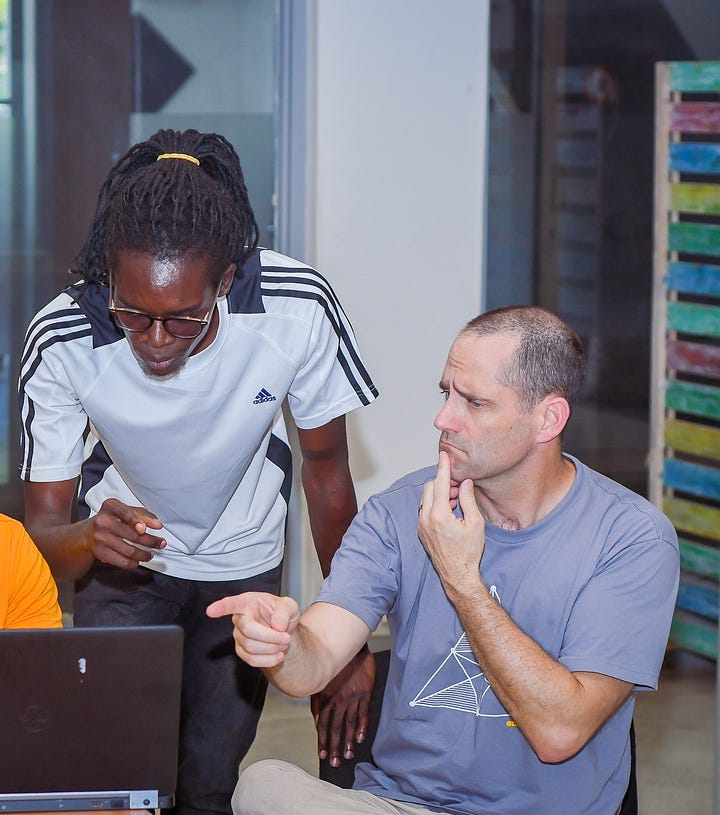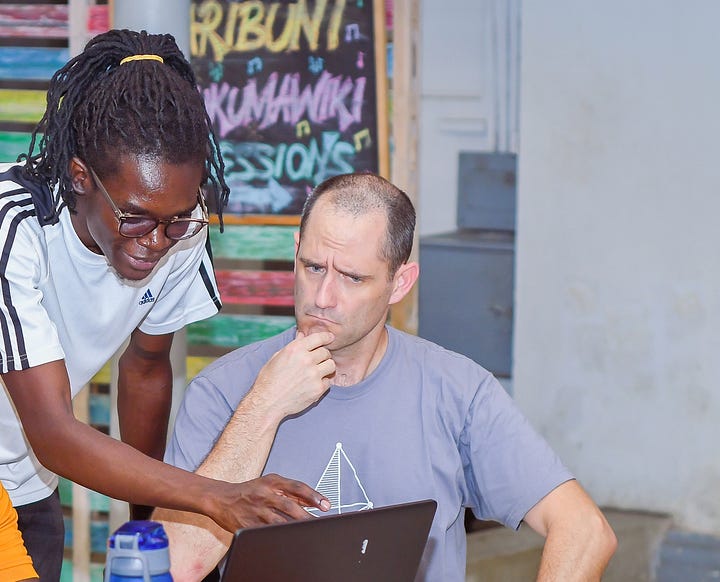it’s been a rough couple of weeks, been struggling with data, understanding data like nobody’s business. so i have been deep-seeking sh*t to make me really good at it.
working in an ngo, or with humanitarian organizations, means interacting with lots of data to help the “big guys” decide what to do, or not to do.
i “stambled” upon this amazing podcast series “Peering Through the Data Scope: Uncovering the Unknown”
From Humanitarian Frontiers in AI: Peering Through the Data Scope: Uncovering the Unknown, Feb 10, 2025
Jeff and Mathew(my friend apparently ☺️) are super fascinated with ai and matters data, and some other nerdy stuff.
the podcast is about how ai helps Humanitarian organizations, but one thing keeps coming: data! data! data! and more data!
the host asked:
“And I know that that sounds like a simple question, but it's really complex because organizations don't have all their data in one place. So it can be one thing somewhere and something else somewhere else, and where it's stored, how it's stored, in what format, and all those things. So when we just start off from the bare bones of this, and maybe, …”
i felt the question(literally).
i have been working with lots of unstructured data, we spent some good amount of time with Mathew Harris, discusing matters data collection, data storage and even pii, when we were working on some matching algorithm: What comes first? The data or the algorithm?


i am a software dude(not a vibe coder!), that does not mean i should handle or understand data, as a matter of fatc, i think getting exposed to understing how data works within an organization, makes me a 10x software dude.
i can admit that not understanding data structures can be a great setback at delivering system softwares, ask me 😂.
grok 3 is out now: i have been biased towards it, but it’s really good, with code prompts comapared to gpt-for.
if you love django and you can speak words that people understand, you can check this out:
https://x.com/djcafrica/status/1892170871919251585
i wanna talk about using mongodb as a database backend with django: fun fact, django mainly uses relational databases …



